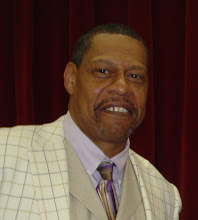In what is a growing trend in America, it appears that even when the economy is booming, poverty continues to rise. The latest chapter in the trend is Washington, DC, according to reports the city is experiencing financial prosperity for the higher end wage earners. This however is not trending down towards the workers on the lower end of the spectrum. This condition is being repeated all over the country and other than John Edwards this trend is receiving very little coverage. We are in the process of creating wealth for only the high wage income categories, completely ignoring the low wage categories. How can we continue to justify the escalating wages of high income workers while keeping the low wage workers incomes at levels adjusted for inflation at the same scale of 1960? Why are more people not enjoying the benefits of economic prosperity? Is there a concerted effort to prevent the prosperity from reaching the poor?
The District's poverty rate is the highest in nearly a decade, and the employment rate for African American adults is at a 20-year low, according to a study to be released today.
Although the District's robust economy has spurred job growth, higher salaries, a construction boom and neighborhood revitalization, the city's poorest and least-educated residents have been left behind -- living "on the other side" of the city's "gleaming economy," the D.C. Fiscal Policy Institute says.
The institute's study, titled "D.C.'s Two Economies," also shows that the gap between high-wage and low-wage workers in Washington is at an all-time high, with salaries for the least-paid workers (adjusted for inflation) virtually unchanged in three decades. Income inequality in the District is greater than in every city in the United States other than Atlanta and Tampa, the study says.[1]
The trickledown theory is once again proving to be the rich pissing down the backs of the poor. It seems that our economy is operating in two worlds; there is the high finance world that is booming and then there is the street economy where most poor Americans live and it isn’t doing so good. One could almost say that there is an effort to create the environment to force more and more poor people to turn to crime to survive. This of course would accomplish two goals, it would marginalize the poor by incarcerating them thus making them ineligible for most decent jobs, federal programs, and voting. The other would be to continue to fund the cottage industry that has replaced factory work in rural America with prison work.
By charging and convicting young poor people with a felony, you have sentenced them to a life without opportunity. You have stripped them of their rights to participate in our election system, you have made it next to impossible to participate in any employment higher than janitor or fast-food worker, and you have prevented them from participating in most federal programs. Therefore, you have removed all hope they have for any type of productive life. So, on the one hand you make street crime the only viable option and then you create a system of justice that penalizes the convicted for life. This allows you to claim that the problem is not with the system; it is that the poor are just prone to criminal behavior. If they would only play by the rules, their lives would get better. As if the playing field were actually level and the poor just choose to fail. This may get you on Fox News, but it adds nothing to the dialog of why the rich are getting richer and the poor are being forgotten.
There are many voices black and white that would have us to believe that success is some quantifiable objectives that if you just follow a few simple steps, the American Dream is yours to possess. Of course, along the way they ignore how unattainable that dream looks to a kid looking out of project windows. Are the poor doing things to intensify their downward spiral? Of course they are, but do any of us always do the things that would benefit us? When you remove all hope for a better life, you condemn men to more than just poverty. You condemn them to a state of hopelessness, which is far worse than just being poor. Hopelessness breeds desperation and desperation breeds frustration.
There is a disconnect taking place in America. It involves more than just white from black and vice versa, it is the haves and the have-nots. And if it continues unabated there will not be enough prison space available to contain it. Currently it is fashionable to ignore the needs of the poor, the SChips bill is a prime example. We are blaming the victim for the conditions that cause the disease. This of course helps to ease consciouses as we walk by them in doorways or on the streets. A country like ours must do better or we will reap the whirlwind of indifference and neglect.
[1] http://www.washingtonpost.com/wp-dyn/content/article/2007/10/23/AR2007102302230.html?hpid=moreheadlines
Tuesday, October 30, 2007
Economic Boom Brings Poverty
Posted by
Forgiven
at
8:29 AM
![]()
Labels: Economy, Fox News, John Edwards, Poverty, Trickle-Down, Washington DC
Subscribe to:
Post Comments (Atom)







 Stumble It!
Stumble It!
No comments:
Post a Comment